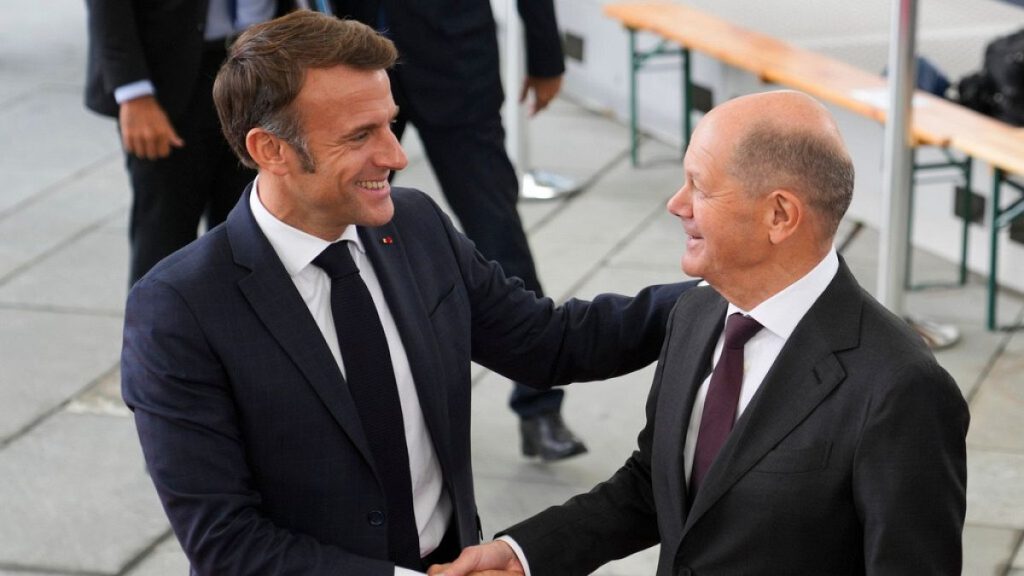French President Emmanuel Macron visited Berlin, meeting with German Chancellor Olaf Scholz to discuss various pressing issues. Macron expressed concerns over the future of Europe, emphasizing the need for deeper integration within the European Union to prevent fragmentation. He also addressed Chinese electric vehicle tariffs, calling for EU support for measures that could potentially lead to a 45% tariff on Chinese EVs. However, Scholz expressed hesitation, citing concerns from German carmakers who fear retaliatory measures that could harm the country’s economy.
During their meeting, Macron also highlighted the importance of prioritizing defense, security, and innovation within the EU to ensure it remains competitive on the global stage. He criticized the current EU budget for inefficiency and stressed the need for further advancements in green energy transition to avoid economic stagnation. Meanwhile, Scholz, who faces low approval ratings, is preparing for federal elections next year, raising questions about his re-election bid. Despite their differing views on certain issues, the two leaders coordinated on matters to be discussed at the upcoming European Council meeting in mid-October.
Macron also touched on escalating tensions in the Middle East, calling for a ceasefire amidst the conflict between Israel and Iran. He pledged French support for Israel by increasing military presence in the region. Macron’s visit to Berlin coincided with his fourth visit to Germany this year, reflecting the close partnership between the two countries. He warned that the EU is in a precarious situation and may require a rescue plan in five to ten years if reforms are not implemented soon. This statement underscores the urgency for EU member states to address challenges and deepen cooperation to ensure the bloc’s stability and growth.
The meeting between Macron and Scholz highlighted the complex dynamics within the EU regarding trade, security, and economic policies. While Macron advocated for stricter measures against Chinese imports, Scholz’s preference for open dialogue with China reflects the divergent interests of EU member states, particularly in the face of potential trade retaliation. The discussions also shed light on the need for the EU to enhance its defense capabilities and technological innovation to keep pace with global superpowers. Macron’s emphasis on these areas aligns with his vision for a stronger and more competitive Europe, but challenges remain in achieving consensus among member states.
As Macron and Scholz navigate critical issues impacting the EU, including the green energy transition, defense cooperation, and economic reforms, their partnership serves as a crucial element in shaping the future of the bloc. The leaders’ coordination on European Council matters signifies a commitment to addressing shared challenges and finding common ground on key policy areas. Despite differences in approach, Macron and Scholz’s engagement demonstrates a dedication to strengthening EU unity and fostering collaboration among member states. The outcome of their discussions will have far-reaching implications for Europe’s trajectory, as the region grapples with internal divisions and external pressures in an increasingly volatile global landscape.


